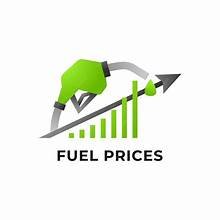Fluctuations in Unleaded Gasoline Prices
Fuel Price Adjustments in St. Kitts: A Detailed Analysis
The St. Kitts Consumer Affairs Department recently announced adjustments to the retail prices of unleaded gasoline, effective April 16th. SOL service stations are now authorized to charge a maximum of EC $14.38 per gallon, while DELTA service stations have a slightly higher ceiling at EC $14.39 per gallon. These prices, approved by the Ministry of Finance, represent another shift in the cost of fuel within a relatively short timeframe. This latest change comes approximately one month after the previous price adjustments, which took effect on March 20th and set prices at EC $13.55 for SOL and EC $14.34 for DELTA. The frequent fluctuations in fuel prices underscore the dynamic nature of the global petroleum market and its impact on local economies.
To fully grasp the implications of these price changes, it’s crucial to understand the underlying factors driving them. Global oil prices, influenced by supply and demand dynamics, geopolitical events, and economic conditions, play a significant role. Factors like production levels by major oil-producing nations, political instability in key oil-producing regions, and global economic growth or recession all contribute to the volatility of oil prices. Currency exchange rates also play a role, especially for countries like St. Kitts and Nevis that rely on imported fuel. Changes in the exchange rate between the Eastern Caribbean dollar (EC$) and the US dollar, the currency typically used for international oil trade, can directly impact the cost of fuel at the pump.
The impact of these price adjustments on consumers and the wider economy can be substantial. For individual consumers, higher gasoline prices translate to increased transportation costs, impacting household budgets and potentially reducing disposable income. This effect can be particularly pronounced for low-income households who may spend a larger proportion of their income on essential goods like transportation. For businesses, increased fuel costs can affect operating expenses, leading to potential price increases for goods and services. Transportation companies, in particular, may feel the pressure of higher fuel prices, potentially impacting the cost of shipping and logistics.
Government policies also play a role in determining fuel prices. Taxes, subsidies, and regulations all influence the final cost at the pump. While taxes can generate revenue for the government, they also contribute to higher prices for consumers. Subsidies, on the other hand, can help mitigate price increases but may also create a financial burden on the government. The balance between these policies requires careful consideration to address both the needs of consumers and the fiscal stability of the government.
The St. Kitts Consumer Affairs Department plays a critical role in monitoring and regulating fuel prices. By setting maximum retail prices, the department aims to protect consumers from excessive price gouging and ensure a fair market. Regular monitoring of global oil prices, exchange rates, and other relevant factors allows the department to make informed decisions about price adjustments and ensure transparency in the fuel market.
Moving forward, several factors will likely influence fuel prices in St. Kitts and Nevis. Continued volatility in global oil markets, influenced by geopolitical events and economic conditions, will remain a key driver. Changes in currency exchange rates will also play a role, affecting the cost of imported fuel. Government policies, including adjustments to taxes and subsidies, can also impact prices. Monitoring these factors and implementing appropriate policies will be crucial for managing the impact of fuel price fluctuations on the economy and consumers.
These expanded paragraphs provide a more in-depth analysis of the fuel price adjustments in St. Kitts, including the context, underlying factors, impacts, government role, and future outlook. They also offer a more nuanced perspective on the complexities of fuel pricing and its effects on various stakeholders.
Share this content:












Post Comment